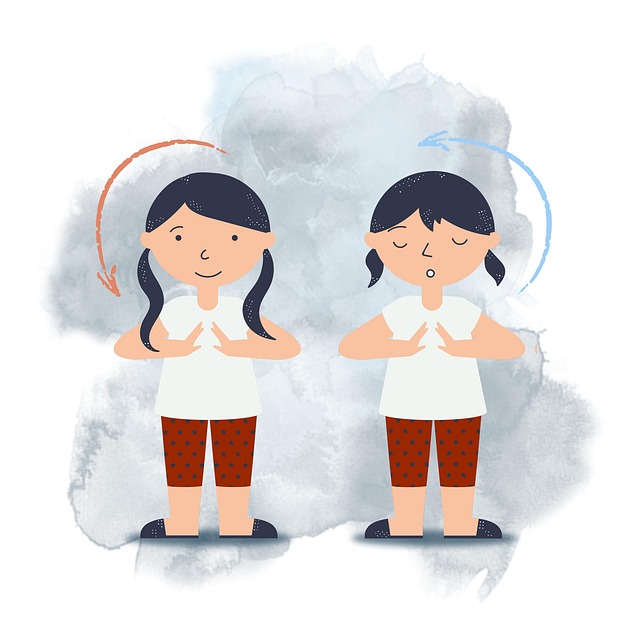Davis recently shared in an initial consult that he was noticing he was having trouble breathing. He first wondered if his sudden shortness of breath might be allergies, or even an issue with his lungs. After a visit to his doctor and subsequent tests, nothing out of the ordinary was found (or, as my doctor likes to phrase it, “results were unremarkable.”). “Almost like an air hunger,” he shared. The doctor suggested that it might be anxiety.
“My mind was blown. I didn’t even consider that it was my anxiety showing up this way,” he shared.
Gasping for air, heart racing, and chest tightening are some of the most common symptoms of anxiety. They can be confusing, as these symptoms feel very physical to us, and mimic the signs of much more serious conditions, like heart disease.
If you find yourself having difficultly breathing, you should see your doctor. If serious illnesses are ruled out, it may be time to consider the possibility that your shortness of breath is a symptom of anxiety. Why does anxiety affect our breathing?
The Link Between Anxiety and our Breath
When our body begins to feel anxious, it activates our “fight or flight” response, flooding your system with stress hormones like adrenaline. This results in:
- Rapid, shallow breathing (hyperventilation)
- Tightness in the chest
- Increased heart rate
- Muscle tension
These changes are your body’s way of preparing to deal with a threat. Unfortunately, the body cannot distinguish between what it perceives as a threat and what is actually a threat. You may end up confused by your anxiety response – sometimes it may happen when you’re simply walking down the street, not feeling necessarily anxious at all.
This breathing can make you feel like you’re not getting enough air, even when oxygen levels are normal, triggering more anxiety.
How Anxiety-Induced Shortness of Breath Feels
- Feeling like you cannot take a deep breath
- A sense of suffocation or “air hunger”
- Tightness or pressure in the chest
- Frequent yawning or sighing in an attempt to “catch your breath”
Here’s How to Help
- Notice
Simply noticing and understanding what is happening to you is a great first step. When you start to feel a shortness of breath, you can remind yourself that this is anxiety. - Breathe
Begin to take slow, deliberate breaths to help. There are many types of breathing types, including boxed breathing (4 second in, hold for 4 seconds, 4 seconds out, hold for 4 seconds, and repeat), or our favourite, inhaling through the nose for 3 seconds, exhaling through the mouth for 5 seconds. Choose a technique and repeat for at least four cycles. Be careful not to over breathe here! - Grounding
When anxiety spikes, shift your focus away from your symptoms. Try the 5-4-3-2-1 technique: name 5 things you can see, 4 you can touch, 3 you can hear, 2 you can smell, and 1 you can taste. - Move Your Body
Gentle exercise like walking or yoga can reduce anxiety and regulate your breathing patterns. - Taste Something
My client keeps a bag of sour candies in her car, and whenever she feels the anxiety rising, she takes one. The sour tastes distracts her, and brings her awareness into what she’s eating. She finds this helps lessen her anxiety within seconds. - Address the Root Cause with Therapy
Managing anxiety through therapy can help significantly with tools and skill building to help. Talking to someone about what you’re going through can help lessen your anxiety, assisting to provide you with coping tools so that your anxiety will not feel so debilitating. Here’s where we can help – at Impart, all of our therapists are trained in anxiety reduction (through tools like CBT, DBT, humanistic and solution focused therapy). If you’re looking for help to manage your anxiety, you can find out more about our team here.
Shortness of breath is a real, physical symptom of anxiety, and can feel confusing, overwhelming and panic inducing. With the right tools, you can manage your symptoms. Learning to recognize the signs, staying calm in the moment, and treating the underlying anxiety can make a big difference. Starting therapy helped Davis considerably, and he noticed his air hunger decreasing over time.
Impart Therapy
Written by Nadine Evans at Impart Therapy. At Impart, we work with clients struggling with anxiety, stress, and life transitions. If you are looking for help, please reach out. Our therapists are available immediately. Contact us today!


